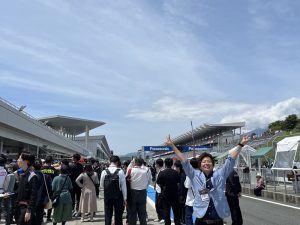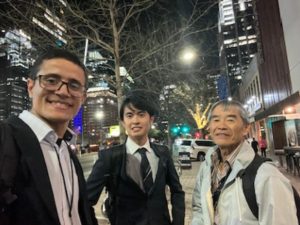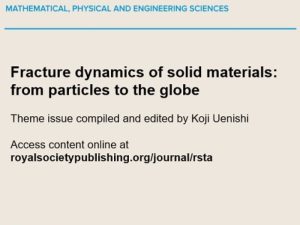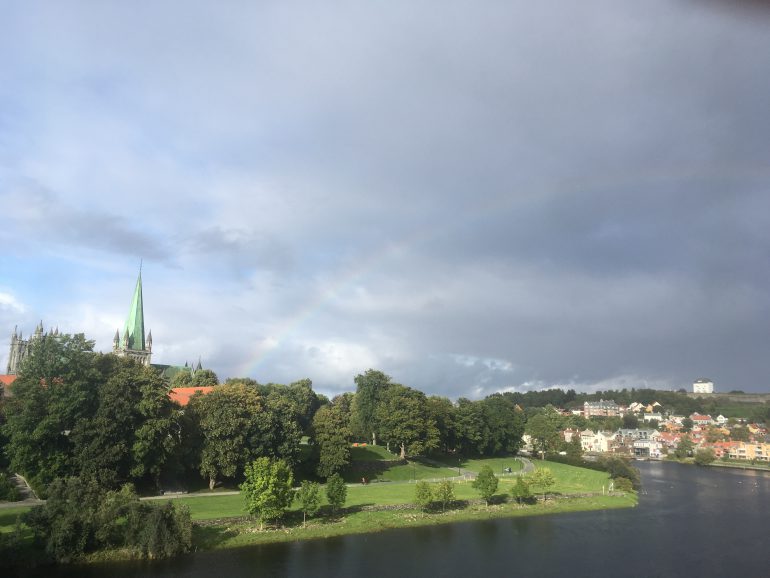
Hello, this is Tokita of moat Fujimoto laboratory Master’s 1 year. I had the opportunity to work at SINTEF Energi, a research institute in Trondheim, Norway, for about a month from August 26 to September 22 this year. In this article, I would like to write a story of that experience. The title of “Part 2” is because Dr. Shimizu, a specially appointed assistant professor of the laboratory, visited SINTEF Energi last winter and was also introduced on the blog of the Department of Advanced Energy Engineering. It is written in detail about Trondheim and SINTEF Energi, so please read it if you like → (http://www.ae.ku-tokyo.ac.jp/2018/12/31/%e3%83% 8e% e3% 83% ab% e3% 82% a6% e3% 82% a7% e3% 83% bc% e3% 81% a7% e3% 81% ae% e7% a0% 94% e7% a9% b6% e7% 94% 9f% e6% b4% bb /).
Trondheim is the third most populous city in Norway, about 500 km northeast of Oslo, the capital. Due to the high latitude, it was cool even in September, and the morning temperature was always single digits, so I couldn’t let go of the court. The cityscape of Trondheim was very beautiful and the view of the city’s symbol of Nidaros Cathedral from the top of the bridge over the Nidelba River was particularly impressive (and, when I took the picture, it was just a rainbow) .
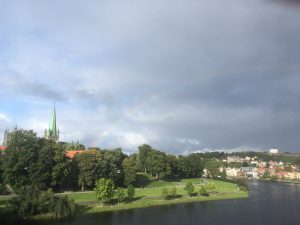
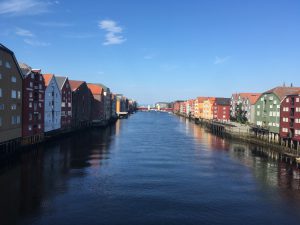
Shopping malls and restaurants were lined up in the city area, and were always crowded with many families. I also took a bus from the city center for about 20 minutes and climbed the mountain, overlooking the vast forest. There is also a fjord within walking distance of the city, and it was a very livable town that combines convenient urban areas and rich nature in a compact space.
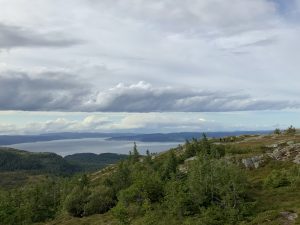
SINTEF Energi, where I stayed, is a research institute located on the premises of the Norwegian Institute of Technology, a short walk from the city, and is conducting research to solve energy problems. I belonged to the Hori-Fujimoto laboratory last year, and have been conducting research on “wireless power transfer while driving”, which sends electric power from a road surface to a running electric vehicle wirelessly. I was able to have frequent discussions with local researchers and live a fruitful research life.
As mentioned in the first article by Dr. Shimizu, SINTEF Energi’s employees said that they work in a short time from early in the morning and spend their nights and holidays with their families. And it looked very ideal. Looking back on my research life when I was in Japan, I often found myself staying in the lab late at night, sometimes breaking my life rhythm and not getting up in the morning. When I actually researched on the same schedule as those of SINTEF Energi, I felt that productivity had increased dramatically, so I felt that I wanted to control my life in Japan as well.
By the way, while I was in Norway, you took a graduate school entrance examination for advanced energy engineering. Congratulations to all those who passed. Some readers of this article may wish to take this exam and enroll next year or later. Finally, I would like to convey the appeal of the advanced energy engineering major to such people from the perspective of those who enrolled this year.
I think that the schedule was decided to some extent in universities, such as many compulsory classes, but in graduate schools there is more freedom than in universities, and autonomy is required to advance research. If you are motivated to do so, you can consult one-on-one with a researcher who is active at the forefront of the field, discuss as much as you can with superior seniors, synchronouss, and juniors, or use simulations and experiments to get hands-on. And the best environment for experimenting with techniques. The Department of Advanced Energy Engineering has many laboratories in a wide range of fields, such as electricity and aeronautics. And, as introduced in this article, you can also have the opportunity to go abroad for research and international conferences. Before I entered the lab, I never thought I could go abroad for research, but many people around me also visited various countries for research and conference presentations from the master’s course, It also motivates me to do my research. It is a great honor for this testimonial of Norway to encourage our students.
For me, who had never stayed abroad for a long time, this opportunity to study in Norway for a month was a very valuable experience. I would like to make efforts to utilize this experience in my future research life. Thank you for reading to the end.
This page was automatically translated into English.
Please note that the translation system may not necessarily be accurate.
Thank you in advance for your kind understanding.




